31 May 2019 | Ukraine Incident Reports
[vc_row][vc_column][vc_column_text]
Index on Censorship’s Monitoring and Advocating for Media Freedom project tracks press freedom violations in five countries: Azerbaijan, Belarus, Russia, Turkey and Ukraine. Learn more.
[/vc_column_text][/vc_column][/vc_row][vc_row][vc_column][vc_custom_heading text=”9 Incidents” use_theme_fonts=”yes”][vc_custom_heading text=”Online outlet correspondent assaulted by politician” font_container=”tag:h3|text_align:left” use_theme_fonts=”yes”][vc_column_text]16 May 2019 — Oleg Baturin, New Day online outlet correspondent, was assaulted by a deputy of the Kherson regional council in Kahovka. The official blocked the journalist, grabbed his hands and threatened to cripple him.
Link(s): http://nikcenter.org/newsItem/50465
http://nk-online.com.ua/kahovskiy-zhurnalist-ne-hochet-stat-kalekoy-poetomu-obratilsya-v-politsiyu/
Categories: Physical Assault/Injury
Source of violation: Government/State Agency/Public official(s)/Political party[/vc_column_text][vc_custom_heading text=”Journalist assaulted by a government official in Kyiv” font_container=”tag:h3|text_align:left” use_theme_fonts=”yes”][vc_column_text]15 May 2019 — Volodymyr Tymofiychuk, 1+1 TV Channel correspondent, was assaulted by a government official in Kyiv. The official pushed the journalist, grabbed his clothes and hands.
Link(s): https://detector.media/community/article/167526/2019-05-23-zhurnalist-11-podav-u-politsiyu-zayavu-cherez-pereshkodzhannya-z-boku-pratsivnika-kabinetu-ministriv/
https://imi.org.ua/news/zhurnalist-1-1-napysav-zaiavu-u-politsiiu-cherez-pereshkodzhannia-z-boku-posadovtsia-kabminu/
Categories: Physical Assault/Injury
Source of violation: Government/State Agency/Public official(s)/Political party[/vc_column_text][vc_custom_heading text=”Editor-in-chief’s car set on fire” font_container=”tag:h3|text_align:left” use_theme_fonts=”yes”][vc_column_text]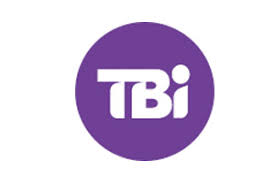 12 May 2019 — The editor-in-chief of TVi Channel Vladimir Yegorov said that his car was set on fire in Kyiv, the Ukrinform news agency reported.
12 May 2019 — The editor-in-chief of TVi Channel Vladimir Yegorov said that his car was set on fire in Kyiv, the Ukrinform news agency reported.
“Today, at 4:30 am, my car was set on fire, I associate it with my professional activity,” Yegorov posted on Facebook. According to Yegorov’s version of events, arson is suspected because his neighbors heard the sound of an explosion before the car caught fire.
Ukraine’s National Police launched a criminal investigation under the “intentional destruction or damage to property” of the country’s criminal code. Yegorov said he would ask the police to reframe the case under the article “intentional destruction or damage to the property of the journalist”, according to Detector Media online outlet.
Sources:
https://www.ukrinform.ua/rubric-kyiv/2698400-golovnomu-redaktoru-telekanalu-spalili-avtivku.html
https://www.facebook.com/permalink.php?story_fbid=2667278600009174&id=100001811816352
https://kyiv.npu.gov.ua/news/Informacziya/policziya-rozpochala-kriminalne-provadzhennya-za-faktom-zagoryannya-avtomobilya/
https://detector.media/community/article/167195/2019-05-12-politsiya-vidkrila-provadzhennya-za-faktom-pidpalu-avtivki-golovnogo-redaktora-tvi/
Categories: Attack to Property
Source of violation: Unknown[/vc_column_text][vc_custom_heading text=”TV crew assaulted by customs officers” font_container=”tag:h3|text_align:left” use_theme_fonts=”yes”][vc_column_text]9 May 2019 — Natalia Polishchuk, Maria Petruchyk and Vyacheslav Moroshko — journalists working for Avers TV channel — were assaulted by customs officers at the Yagodyn border crossing with Poland.
The journalists were investigating a large shipment of amber, which was alleged to have been smuggled to Poland through the Yagodyn customs station. They entered a restaurant where customs agents were attending a party and began asking questions about corruption and the amber smuggling. According to Avers, the officers who were present behaved aggressively and assaulted the journalists. One journalist’s finger was bruised and the crew’s camera was broken, 1+1 TV channel reported.
“Two men approached me, they started tugging at me, tore my jacket, hit the cameraman, hit the camera,” Polishchuk said. Petruchyk reported, “He wrestled my phone out of my hand, used brute force, my hand is damaged, he tore my journalist’s ID off me.” The officers also forcibly took the journalists’ driver’s licenses, car documents and bank cards. A customs officer told one of the journalists he would “bury her” the following day. The journalists managed to film a part of the incident.
The police have opened criminal proceedings on three articles. “It’s about interfering with the professional activities of journalists, robbery and causing intentional light bodily injuries,” Viktor Homol, spokesperson for the National Police in the Volyn region, said. The case is now being investigated by the State Bureau of Investigations.
Sources:
https://www.volynnews.com/news/extreme/piani-volynski-mytnyky-pobyly-ta-pohrabuvaly-znimalnu-hrupu-telekan/
https://tsn.ua/ukrayina/zhurnalistiv-na-volini-pobili-mitniki-spravu-rozsliduye-dbr-1343535.html
Categories: Physical Assault/Injury, Attack to Property, Blocked Access
Source of violation: Government/State Agency/Public official(s)/Political party
[/vc_column_text][/vc_column][/vc_row][vc_row][vc_column][vc_custom_heading text=”Journalists assaulted during commemoration rally” font_container=”tag:h3|text_align:left” use_theme_fonts=”yes”][vc_column_text]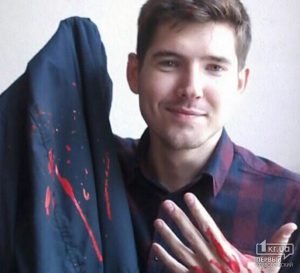 9 May 2019 — Unidentified persons threw red paint on people during a commemorative march in the Dnipro city (Dnipropetrovsk). As a result of the attack, a journalist from Kryvyi Rih and the operator of the 34th TV channel were injured, Pervyy Krivorozhskiy TV channel reported.
9 May 2019 — Unidentified persons threw red paint on people during a commemorative march in the Dnipro city (Dnipropetrovsk). As a result of the attack, a journalist from Kryvyi Rih and the operator of the 34th TV channel were injured, Pervyy Krivorozhskiy TV channel reported.
The names of the journalists were not reported. The National Police confiscated items that were stained with paint. The journalists filed a complaint with the police, demanding the investigation to be opened under the article “obstructing the professional activities of journalists” of the criminal code of Ukraine. However, the police opened a case under the article “hooliganism”.
Sources:
https://1kr.ua/news-50606.html
https://dp.npu.gov.ua/news/podiji/stanom-na-1500-v-policziji-vidkrito-4-kriminalni-provadzhennya-pov-yazani-z-podiyami-pid-chas-masovix-zaxodiv/
https://imi.org.ua/news/u-dnipri-pid-chas-mitynhu-postrazhdala-znimal-na-hrupa-34-kanalu/
Categories: Attack to Property
Source of violation: Unknown[/vc_column_text][/vc_column][/vc_row][vc_row][vc_column][vc_custom_heading text=”Journalist receives death threat after arson attack on her home” font_container=”tag:h3|text_align:left” use_theme_fonts=”yes”][vc_column_text]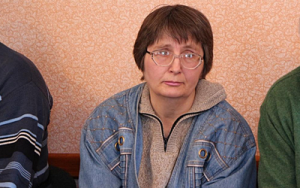 8 May 2019 — Nataliya Kamyshnikova, s journalist for the Radar local online news outlet in Novovolynsk city, was threatened with death, the Institute of Mass Information (IMI) reported. A week earlier, unknown persons set fire to the journalist’s house.
8 May 2019 — Nataliya Kamyshnikova, s journalist for the Radar local online news outlet in Novovolynsk city, was threatened with death, the Institute of Mass Information (IMI) reported. A week earlier, unknown persons set fire to the journalist’s house.
“Yesterday to my friend came close a woman under thirty – with dyed hair, in black glasses in the central market of the city of Novovolynsk. The woman firmly took her by the hand and said: Tell Kamyshnikova this was just the first warning. We will kill her, let her prepare a coffin,” the journalist wrote on Radar website.
On the night of May 1, two unidentified men set fire to a the house belonging to the journalist. Kamyshnikova claimed this had been done out of revenge for one of her articles.
According to IMI, the National Police began the criminal proceedings because of the threats to murder the journalist. Kamyshnikova said that in late January, an anonymous person on the internet threatened her with physical harassment. The journalist then complained to the police. She insisted on entering her case into the Uniform Register of Pre-trial Investigations and requested that criminal proceedings to be instituted. However, the police refused to open criminal proceedings.
Sources:
http://radar.in.ua/obitsyayut-ubyty-komu-zh-ya-tak-zavazhayu/
https://imi.org.ua/news/na-volyni-zhurnalisttsi-cherez-znayomu-peredaly-pohrozu-vbyvstvom/
https://www.volyn24.com/news/126120-vidomij-volynskij-zhurnalistci-pomstylysia-za-material-pidpalom-budynku
https://imi.org.ua/news/politsiia-vidkryla-spravu-cherez-pohrozy-vbyvstvom-volyns-kiy-zhurnalisttsi/
Categories: Intimidation, Attack to Property
Source of violation: Unknown[/vc_column_text][vc_custom_heading text=”Journalist assaulted in Odessa, had sewage poured at her” font_container=”tag:h3|text_align:left” use_theme_fonts=”yes”][vc_column_text]7 May 2019 — Svitlana Pidpala, activist, journalist and blogger, was assaulted in Odessa’s Summer Theater were she was filming a public event. An unidentified person poured a bucket of sewage on Pidpala. Her equipment was damaged.
Link(s): https://www.pravda.com.ua/rus/news/2019/05/7/7214411/
https://www.unn.com.ua/ru/news/1798498-v-odesi-aktivistku-oblili-fekaliyami-ta-nechistotami
Categories: Physical Assault/Injury, Attack to Property
Categories: Physical Assault/Injury, Attack to Property
Source of violation: Unknown[/vc_column_text][/vc_column][/vc_row][vc_row][vc_column][vc_custom_heading text=”Journalist falls into coma after assault” font_container=”tag:h3|text_align:left” use_theme_fonts=”yes”][vc_column_text]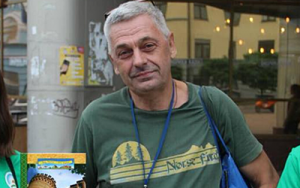 4 May 2019 — An unidentified person armed with a hammer assaulted journalist and blogger Vadim Komarov in the center of Cherkasy, IMI reported.
4 May 2019 — An unidentified person armed with a hammer assaulted journalist and blogger Vadim Komarov in the center of Cherkasy, IMI reported.
According to the National Police, Komarov was walking down the street, when an assailant hit him in the head several times and severly injured him. After that, the attacker fled the scene. Casual passers-by found the badly wounded journalist and called an ambulance at about 9 am. Komarov was operated on the local hospital. According to the doctors quoted on a local online news outlet Procherk, Komarov received an open craniocerebral trauma. The operation lasted two hours after which the journalist fell into a coma.
The police is investigating the case under the criminal article “assassination attempt”.
Komarov is known for his investigation of corruption among city authorities. The journalist has already been assaulted in the past. On 7 September 2016, an unknown person shot at Komarov in Cherkasy, but the bullet hit the wall.
UPDATE:
20 June 2019 — Vadim Komarov died in the hospital without regaining consciousness, IMI reported.
The OSCE Representative on Freedom of the Media, Harlem Désir, expressed his deep sorrow following the death of Komarov. “I am deeply shocked by the death of Vadim Komarov, who was brutally attacked last month in Cherkasy and suffered from serious head injuries,” Désir said. “Vadim Komarov was a well-known media professional who reported about issues of public importance for many years, including by exposing corruption and uncovering abuses of power.” “I strongly condemn this horrendous attack. Those responsible for this crime must be identified and face justice. I reiterate my call on the Ukrainian authorities to complete the investigation in a vigorous and swift manner. It is regrettable that about one-and-a-half months after the attack the law enforcement have not yet identified the perpetrators nor reported any progress on the investigation. Violence and attacks against journalists are unacceptable and must stop. Impunity would be a victory for those who wanted to silence Komarov and to intimidate the press. All OSCE participating States should take effective and resolute actions to prevent and end impunity for such crimes,” Désir said. “I send my sincere condolences to his family, colleagues and friends,” the Representative said.Head of the National Union of Journalists Serhiy Tomilenko said the cause of the murder was the Komarov’s journalistic work. “The murder of Vadim Komarov is a crime against all journalists in general,” Tomilenko said. Also, Tomilenko called journalists for solidarity, because this “topic is important for the survival of a journalist profession in Ukraine.”
Sources:
https://www.osce.org/representative-on-freedom-of-media/423578
https://www.facebook.com/sergiy.tomilenko/posts/2237747729643412?__tn__=K-R
https://imi.org.ua/news/pomer-cherkas-kyy-zhurnalist-vadym-komarov/
https://imi.org.ua/news/u-cherkasakh-pobyly-zhurnalista-vadyma-komarova-vin-u-vazhkomu-stani/
http://procherk.info/news/7-cherkassy/72109-zhorstoko-pobito-cherkaskogo-zhurnalista
http://procherk.info/news/7-cherkassy/72195-rozsliduetsja-kriminalne-provadzhennja-za-faktom-zamahu-na-vbivstvo-vadima-komarova
Categories: Physical Assault/Injury, Death/Killing
Source of violation: Unknown[/vc_column_text][/vc_column][/vc_row][vc_row][vc_column][vc_custom_heading text=”Armed woman assaulted Odessa journalist” font_container=”tag:h3|text_align:left” use_theme_fonts=”yes”][vc_column_text]2 May 2019 — A retired woman armed with a knife tried to assault Olena Solomonova, Odessa.online correspondent, and knocked the phone out of her hands during a commemorative event in Odessa.
Link(s): https://odesa.depo.ua/rus/odesa/aktivisti-z-chervonimi-kulyami-potrolili-kulikovtsiv-20190502957301
https://imi.org.ua/news/v-odesi-na-zhurnalistku-napaly-z-nozhem-i23135
Categories: Attack to Property
Source of violation: Unknown[/vc_column_text][vc_basic_grid post_type=”post” max_items=”4″ element_width=”6″ grid_id=”vc_gid:1575992589423-00806ef6-3f10-4″ taxonomies=”8996″][/vc_column][/vc_row]
30 Apr 2019 | Ukraine, Ukraine Incident Reports
[vc_row][vc_column][vc_column_text]
Index on Censorship’s Monitoring and Advocating for Media Freedom project tracks press freedom violations in five countries: Azerbaijan, Belarus, Russia, Turkey and Ukraine. Learn more.
[/vc_column_text][/vc_column][/vc_row][vc_row][vc_column][vc_row_inner][vc_column_inner][vc_custom_heading text=”5 Incidents” use_theme_fonts=”yes”][/vc_column_inner][/vc_row_inner][vc_column_text]
President of Ukraine asks security service to check 112-Ukraine and NewsOne as possible threats to national security
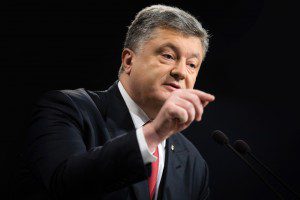 16 April 2019 – “The Verkhovna Rada adopted a resolution on the risks and threats to national security that come from two TV channels. Before addressing this issue, I commissioned a law enforcement agency that is responsible for national security in Ukraine, the SBU, to urgently check the information of the Verkhovna Rada,” president Petro Poroshenko said regarding the 112-Ukraine TV channel, answering a question regarding his plans to consider a petition in defense of the TV channels 112-Ukraine and NewsOne, which got over 25 thousand signatures.
16 April 2019 – “The Verkhovna Rada adopted a resolution on the risks and threats to national security that come from two TV channels. Before addressing this issue, I commissioned a law enforcement agency that is responsible for national security in Ukraine, the SBU, to urgently check the information of the Verkhovna Rada,” president Petro Poroshenko said regarding the 112-Ukraine TV channel, answering a question regarding his plans to consider a petition in defense of the TV channels 112-Ukraine and NewsOne, which got over 25 thousand signatures.
Poroshenko said that as soon as the check is completed, the TV channels will be provided with the results, and will be able to provide comments that will be taken into consideration.
Link(s): https://interfax.com.ua/news/election2019/581252.html
https://www.pravda.com.ua/rus/news/2019/04/16/7212440/
Categories: Legal Measures
Source of violation: Government/State Agency/Public official(s)/Political party, Police/State security
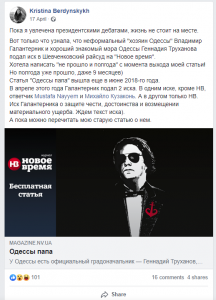 Novoye Vremya reports that there is another complaint filed against it
Novoye Vremya reports that there is another complaint filed against it
17 April 2019 – Businessman Volodymyr Halanternik filed a court complaint on the protection of honour and dignity against Novoye Vremia, a weekly magazine, journalist Khrystyna Berdynskyh posted on Facebook.
An informal “master of Odessa” Volodymyr Halanternik and a good acquaintance of the mayor of Odessa Gennady Trukhanov filed a complaint against Novoye Vremia weekly, she wrote. The journalist added that her article on Volodymyr Galanternik was published in June 2018. In her article Berdynskyh reported that Halanternik had a significant impact on politics and business in Odessa.
Link(s):
https://www.facebook.com/kristina.berdinskikh/posts/10158735452136164
https://imi.org.ua/news/u-novomu-vremeni-povidomyly-shcho-proty-nykh-podaly-shche-odyn-sudovyy-pozov/
https://detector.media/infospace/article/166555/2019-04-17-proti-novogo-vremeni-podali-shche-odin-pozov-do-sudu-berdinskikh/
Categories: Subpoena / Court Order/ Lawsuits
Source of violation: Known private individual(s)
Journalist beaten up by local politician in Odessa
16 April 2019 — Bogdan Osinskiy, Gromadske Slidstvo outlet correspondent and editor for Megafon website, was beaten up near a temple by Odessa regional council deputy Roman Senik and his mother. The journalist fell to the ground in the crowd, and Senik hit him in the face with his feet. The police intervened, but Senik’s mother attacked the journalist in the presence of the officers, hitting him multiple times, and Senik pushed a phone out of the journalist’s hands and smashed it.
Link(s): https://www.048.ua/news/2367344/draka-pod-hramom-deputat-vmeste-s-mamoj-pobil-zurnalista
https://dumskaya.net/news/konflikt-vokrug-hrama-na-pastera-deputat-napal-n-097828/
Categories: Physical Assault/Injury, Attack to Property
Source of violation: Government/State Agency/Public official(s)/Political party, Known private individual(s)
Head of Russian news agency office in Ukraine goes on trial for treason
4 April, 2019 — Prosecutors have accused Kirill Vyshinsky, the head of Russia’s state-run RIA Novosti’s office in Ukraine, of publishing “anti-Ukrainian” articles and materials at the beginning of his treason trial in the Kyiv court. The Podil District Court began the trial on 4 April, almost a year after the 52-year-old was detained by the Ukrainian Security Service (SBU) amid accusations that RIA Novosti Ukraine was participating in a “hybrid information war” waged by Russia against Ukraine. After hearing the prosecutors’ indictment, the court adjourned until April 15th. SBU officials have said Vyshinsky, who at the moment of his arrest had dual Russian-Ukrainian citizenship, received financial support from Russia via other media companies registered in Ukraine in order to disguise links between RIA Novosti Ukraine and Russian state media giant Rossia Segodnya. They also said he was receiving some 53,000 euros (about $60,000) a month from Russian sources for his work, and that the money was sent to him through Serbia. According to the SBU, Vyshinsky was preparing reports at Moscow’s request that sought to justify the seizure of Ukraine’s Crimean Peninsula by Russia in 2014. Vyshinsky faces up to 15 years in prison if found guilty of the charges against him.
Update: 15 April 2019 – The prosecutor’s office accused Vyshinsky on the basis of publication of 72 “anti-Ukrainian” articles, Radio Liberty reported. This was announced by the prosecutors when they announced the indictment in Podilsky district court of Kyiv. Prosecutors stated that these articles were posted by Vyshinsky between 2014 and 2018. According to the prosecutors, the materials contained “false, biased information about Ukraine, the Ukrainian authorities and the army and refuted the Russian aggression against Ukraine.” The prosecution also believes that these materials “justify the possible separation of certain regions of Donetsk and Luhansk regions from Ukraine”.
Update: 7 May 2019 — Podilsky District Court of Kyiv extended arrest to Vyshinsky until 22 July 2019, Radio Liberty reported. The prosecutor demanded that the court leave Vyshinsky arrested for another two months. He substantiated this with the fact that the defendant has Russian citizenship and can escape to Russia. The defense spoke against the extension of the arrest and requested that Vyshinsky be released under house arrest.
Link(s): https://www.radiosvoboda.org/a/news-vyshynskomu-zachytuyut-obvynuvachennya/29882290.html
https://www.radiosvoboda.org/a/news-vyshynskiy-ria-novosti/29861706.html
https://www.rferl.org/a/ukraine-vyshinsky-ria-novosti-ukraine-treason-trial/29861826.html
Categories: Arrest/ Detention, Criminal Charges/Fines/Sentences
Source of violation: Police/State security, Court/Judicial
Journalist assaulted by transport company employee
2 April 2019 — Zhytomyr.Life online outlet crew was assaulted by local transport company employee in Zhytomyr. The man attacked cameraman Vasyl Homyuk and twice tried to knock the camera out of his hands.
Link(s): https://detector.media/community/article/166064/2019-04-03-u-zhitomiri-zhurnalisti-zayavlyayut-pro-napad-u-marshruttsi/
https://zhitomir.life/10654-u-zhitomiri-predstavnik-pereviznika-napav-na-zhurnalistiv-video.html
Categories: Attack to Property
Source of violation: Known private individual(s)[/vc_column_text][/vc_column][/vc_row][vc_row][vc_column][vc_basic_grid post_type=”post” max_items=”4″ element_width=”6″ grid_id=”vc_gid:1575991602847-ad26670e-749a-1″ taxonomies=”8996″][/vc_column][/vc_row]
25 Mar 2019 | Awards, News and features
[vc_row][vc_column][vc_video link=”https://youtu.be/VKf4-ki-cds”][vc_column_text] Bihus.info is a group of independent investigative journalists in Ukraine who – despite threats and assaults – are fearlessly exposing the corruption of many Ukrainian officials.
Bihus.info is a group of independent investigative journalists in Ukraine who – despite threats and assaults – are fearlessly exposing the corruption of many Ukrainian officials.
In the last two years alone, Bihus.info’s coverage has contributed to the opening of more than 100 legal cases against corrupt officials, helped save 500 million hryvnia (£13.8 million) of public money from embezzlement, and led to the dismissal over 20 compromised candidates from the competition for seats on the reformed supreme court.
Chasing money trails, murky real estate ownership and Russian passports, Bihus.info produces hard-hitting, in-depth reports for popular television programme, Nashi Hroshi (Our Money), which illuminates the discrepancies between the officials’ real wealth and their official income.
The team’s goal is not just informing Ukrainians, but to convince them that exposing corruption is nothing to shy away from. To do this, it has sought to involve citizens and to improve the standards of Ukrainian investigative journalism as a whole. For example, the Bihus.info team created the Ukraine’s largest open registry of officials’ tax declarations, which became the source of many of their reports. They gave access to other publications and projects as well.
Bihus.info then launched the Tynsy! [Push!] project in which lawyers follow up on investigations to translate them into action – writing reports to law enforcement agencies, monitoring investigations and arguing cases in courts. The lawyers also assist journalists before and after publication. Legal support is provided not only to journalists of Bihus.Info, but also to corruption fighters belonging to over 50 organisations from all over Ukraine.
Investigative journalism in Ukraine is an increasingly risky business. Journalists have been beaten, persecuted and killed. Transparency International’s 2017 Corruption Perception Index ranks the country 130th place out of 180 countries. In 2015, The Guardian called Ukraine “the most corrupt nation in Europe”.
The Bihus.info team has been repeatedly attacked by MPs’ bodyguards and secret service agents. In the three years it has been operating, the team has been the victim of four serious assaults. In the first of the three, the crew was attacked by the son-in-law of the deputy minister of Internal Affairs. In 2018, the Bihus.info team found out it was being followed by the Security Services.
In 2018, the team has investigated government and opposition politicians, unelected officials and other public figures. One of their reports uncovered the misuse of international aid by the head of the Ukrainian Football Federation.
In another recent investigation, Bihus.info exposed that most of the family members of one of the highest intelligence officers in Ukraine had Russian passports – while the war between Russia and Ukraine continues.[/vc_column_text][vc_separator][vc_row_inner][vc_column_inner width=”1/2″][vc_single_image image=”104691″ img_size=”full” onclick=”custom_link” link=”https://www.indexoncensorship.org/2019/01/awards-2019/”][/vc_column_inner][vc_column_inner width=”1/2″][vc_column_text]
Index on Censorship’s Freedom of Expression Awards exist to celebrate individuals or groups who have had a significant impact fighting censorship anywhere in the world.[/vc_column_text][/vc_column_inner][/vc_row_inner][vc_separator][/vc_column][/vc_row][vc_row][vc_column][vc_basic_grid post_type=”post” max_items=”4″ element_width=”6″ grid_id=”vc_gid:1553263258536-1edfda11-60d5-3″ taxonomies=”26925″][/vc_column][/vc_row]
23 Nov 2017 | Mapping Media Freedom, Media Freedom, media freedom featured, News and features
Russian and Ukrainian investigative journalist Ekaterina Sergatskova met with Index to discuss her experiences reporting on the conflicts in Iraq and Ukraine.
In 2014, Ukraine saw political and civil unrest amidst conflicting pro-Europe and pro-Russia disputes. The 2014 Ukrainian revolution both stemmed from and perpetuated this unrest, as most of southern and eastern Ukraine opposed the ousting of the democratically elected president, Viktor Yanukovych.
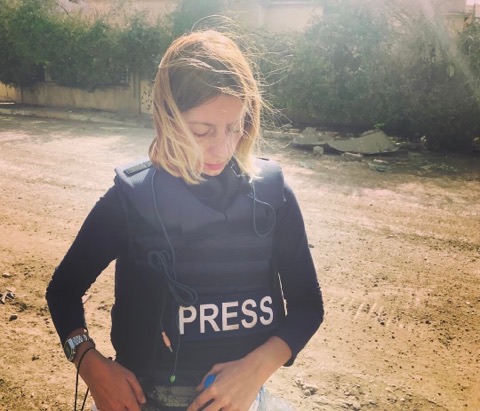 Sergatskova, a reporter on this issue, explains that the conflict made for a harsh environment for journalists: “It is a really hard period of journalism in Ukraine and it is continuing.”
Sergatskova, a reporter on this issue, explains that the conflict made for a harsh environment for journalists: “It is a really hard period of journalism in Ukraine and it is continuing.”
In 2016, a group of hackers released personal contact information of journalists that were considered threatening to the Ukrainian government, including Sergatskova. Following the leak, she received death threats.
Three months after the leak, journalist Pavel Sheremet — a friend and colleague of Sergatskova — was murdered in a crime that is believed to be linked to his reporting. After a year and a half, Sergatskova says, there are still have no answers.
The journalist says that following such incidents, she and her colleagues feel unsafe but nevertheless will persist in their reporting: “We have a lot of really good investigators and they will not stop … because it’s their mission. We’re afraid of it, but we have only one way to save our country, to develop, to be a normal country with normal rules, we need to do our work.”
 12 May 2019 — The editor-in-chief of TVi Channel Vladimir Yegorov said that his car was set on fire in Kyiv, the Ukrinform news agency reported.
12 May 2019 — The editor-in-chief of TVi Channel Vladimir Yegorov said that his car was set on fire in Kyiv, the Ukrinform news agency reported.  9 May 2019 — Unidentified persons threw red paint on people during a commemorative march in the Dnipro city (Dnipropetrovsk). As a result of the attack, a journalist from Kryvyi Rih and the operator of the 34th TV channel were injured, Pervyy Krivorozhskiy TV channel reported.
9 May 2019 — Unidentified persons threw red paint on people during a commemorative march in the Dnipro city (Dnipropetrovsk). As a result of the attack, a journalist from Kryvyi Rih and the operator of the 34th TV channel were injured, Pervyy Krivorozhskiy TV channel reported. 8 May 2019 — Nataliya Kamyshnikova, s journalist for the Radar local online news outlet in Novovolynsk city, was threatened with death, the Institute of Mass Information (IMI) reported. A week earlier, unknown persons set fire to the journalist’s house.
8 May 2019 — Nataliya Kamyshnikova, s journalist for the Radar local online news outlet in Novovolynsk city, was threatened with death, the Institute of Mass Information (IMI) reported. A week earlier, unknown persons set fire to the journalist’s house. 4 May 2019 — An unidentified person armed with a hammer assaulted journalist and blogger Vadim Komarov in the center of Cherkasy, IMI reported.
4 May 2019 — An unidentified person armed with a hammer assaulted journalist and blogger Vadim Komarov in the center of Cherkasy, IMI reported. 
 16 April 2019 – “The Verkhovna Rada adopted a resolution on the risks and threats to national security that come from two TV channels. Before addressing this issue, I commissioned a law enforcement agency that is responsible for national security in Ukraine, the SBU, to urgently check the information of the Verkhovna Rada,” president Petro Poroshenko said regarding the 112-Ukraine TV channel, answering a question regarding his plans to consider a petition in defense of the TV channels 112-Ukraine and NewsOne, which got over 25 thousand signatures.
16 April 2019 – “The Verkhovna Rada adopted a resolution on the risks and threats to national security that come from two TV channels. Before addressing this issue, I commissioned a law enforcement agency that is responsible for national security in Ukraine, the SBU, to urgently check the information of the Verkhovna Rada,” president Petro Poroshenko said regarding the 112-Ukraine TV channel, answering a question regarding his plans to consider a petition in defense of the TV channels 112-Ukraine and NewsOne, which got over 25 thousand signatures.  Novoye Vremya reports that there is another complaint filed against it
Novoye Vremya reports that there is another complaint filed against it Bihus.info is a group of independent investigative journalists in Ukraine who – despite threats and assaults – are fearlessly exposing the corruption of many Ukrainian officials.
Bihus.info is a group of independent investigative journalists in Ukraine who – despite threats and assaults – are fearlessly exposing the corruption of many Ukrainian officials. Sergatskova, a reporter on this issue, explains that the conflict made for a harsh environment for journalists: “It is a really hard period of journalism in Ukraine and it is continuing.”
Sergatskova, a reporter on this issue, explains that the conflict made for a harsh environment for journalists: “It is a really hard period of journalism in Ukraine and it is continuing.”